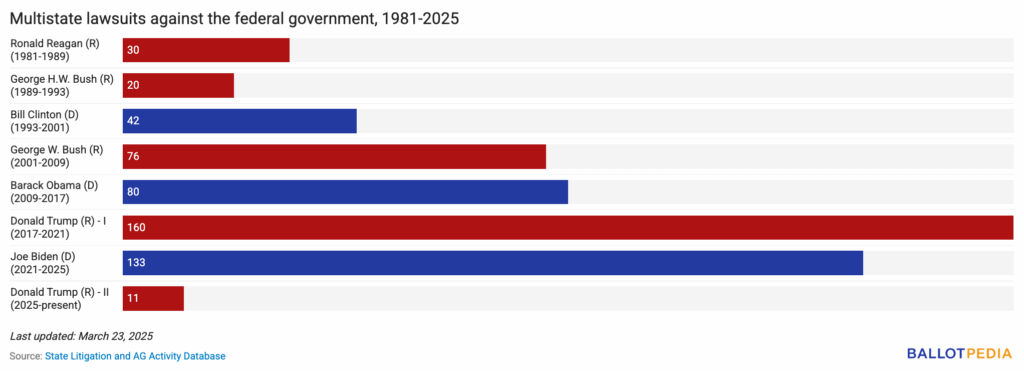What happened?
The U.S. Supreme Court heard oral arguments May 15 in Trump v. CASA, Inc., a case challenging President Donald Trump’s (R) executive order restricting birthright citizenship. The case was consolidated with Trump v. Washington and Trump v. New Jersey, in which four and 18 states, respectively, filed lawsuits against the administration.
The legal challenge centers on Trump's Jan. 20 Executive Order 14160, which seeks to deny birthright citizenship to children born in the United States to undocumented immigrants. In total, 22 states and the District of Columbia sued the administration, arguing that the order violates the 14th Amendment’s Citizenship Clause. Twenty-two Republican-led states filed an amicus brief supporting the executive order and the administration's authority over immigration policy.
Why does it matter?
Although the case has drawn attention for its implications on birthright citizenship, the key legal question before the Supreme Court is whether a federal district judge can issue a nationwide (universal) injunction to block a presidential action. Supporters of the injunction argued swift judicial intervention is necessary when executive orders are alleged to be unconstitutional. Opponents said nationwide injunctions expand judicial power beyond its intended scope.
The case illustrates how states increasingly turn to the courts when they believe the federal government has exceeded its authority. In recent years, lawsuits—particularly those seeking nationwide injunctions—have become a primary tool for states to challenge and shape federal policy.
The following chart compares the total number of multistate lawsuits filed against each presidential administration between 1981 and 2025, according to the State Litigation and AG Activity Database:

Trump v. CASA, Inc.
A coalition led by CASA de Maryland filed a lawsuit Jan. 21 in the U.S. District Court for the District of Maryland. In Trump v. CASA, CASA refers to CASA de Maryland, a nonprofit immigrant advocacy organization based in Maryland that joined the lawsuit as a plaintiff. On Feb. 5, U.S. District Judge Deborah Boardman issued a nationwide preliminary injunction halting enforcement of the executive order. Boardman found the plaintiffs were likely to succeed on their claim that the order violated the 14th Amendment’s Citizenship Clause and said they would suffer irreparable harm without an injunction. She also determined that the public interest favored blocking the order.
The Trump administration filed an emergency application for a partial stay with the Supreme Court on March 13, arguing the injunction was overly broad and should apply only to the named plaintiffs. The Court denied the request on April 19.
Trump v. Washington
Four states filed suit on Jan. 21 in Trump v. Washington. U.S. Western District of Washington Judge John Coughenour issued a temporary order on Jan. 23 blocking the executive order nationwide for 14 days. He converted the order into a preliminary injunction on Feb. 6. The Ninth Circuit Court of Appeals denied the Justice Department’s motion to lift the injunction on Feb. 19, keeping the nationwide block in place.
Trump v. New Jersey
In Trump v. New Jersey, a coalition of 18 states filed suit on Jan. 21, and requested a preliminary injunction. U.S. District Judge Leo T. Sorokin granted the injunction on Feb. 13. The Trump administration appealed, but the First Circuit Court of Appeals denied the motion for a stay on March 11, allowing the injunction to remain in effect.
Want to go deeper?



